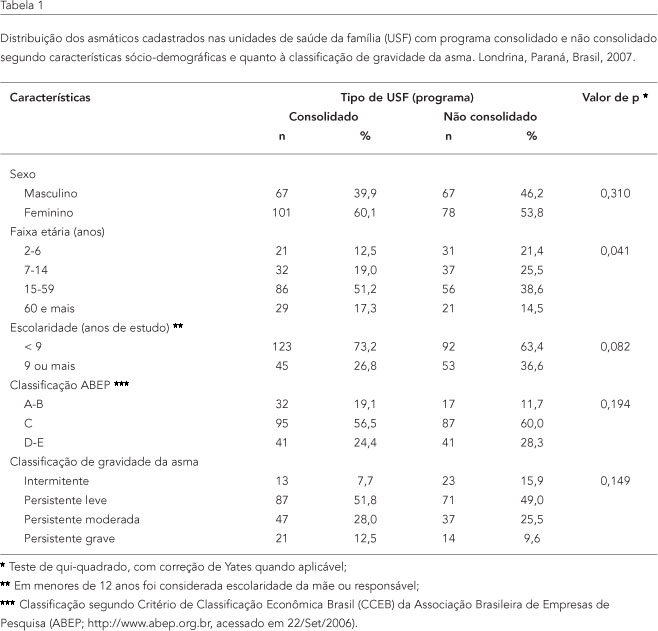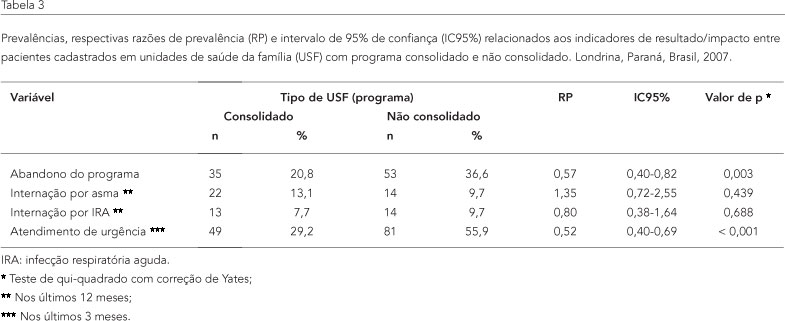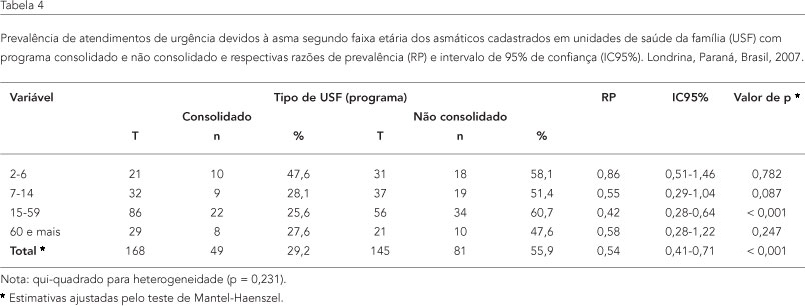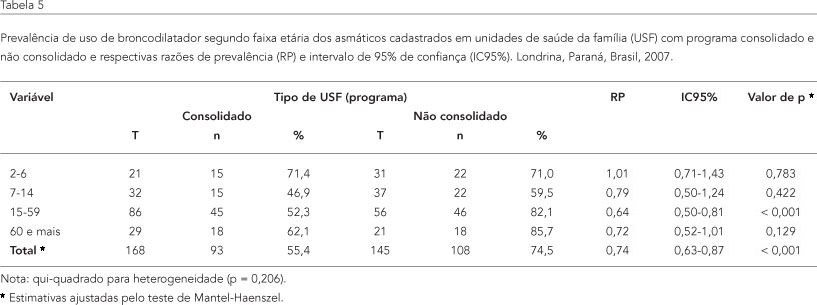The objective of this study was to evaluate the asthma control program in Londrina, Paraná State, Brazil. This is a cross-sectional study, comparing a family health unit (USF) with a consolidated program with two USFs without one. Interviews were performed with 313 asthma patients, 168 from the USF with a consolidated program and 145 from the USFs without one. In the studied sample, there were significant differences (p < 0.001) in the use of bronchodilators and in the number of emergency department visits between the USF with and without a consolidated program. Among the patients enrolled in the USF with a consolidated program, 55.4% reported the use of bronchodilator, in comparison with 74.5% of those enrolled in the two USF without a consolidated program. Respectively 29.2% and 55.9% of the patients from the USFs with and without a consolidated program needed emergency department care. A well-organized asthma control program may result in reduction of emergency department visits due to asthma exacerbation, thus contributing to improving health indicators and quality of life.
Asthma; Program Evaluation; Emergency Medical Services; Hospitalization





